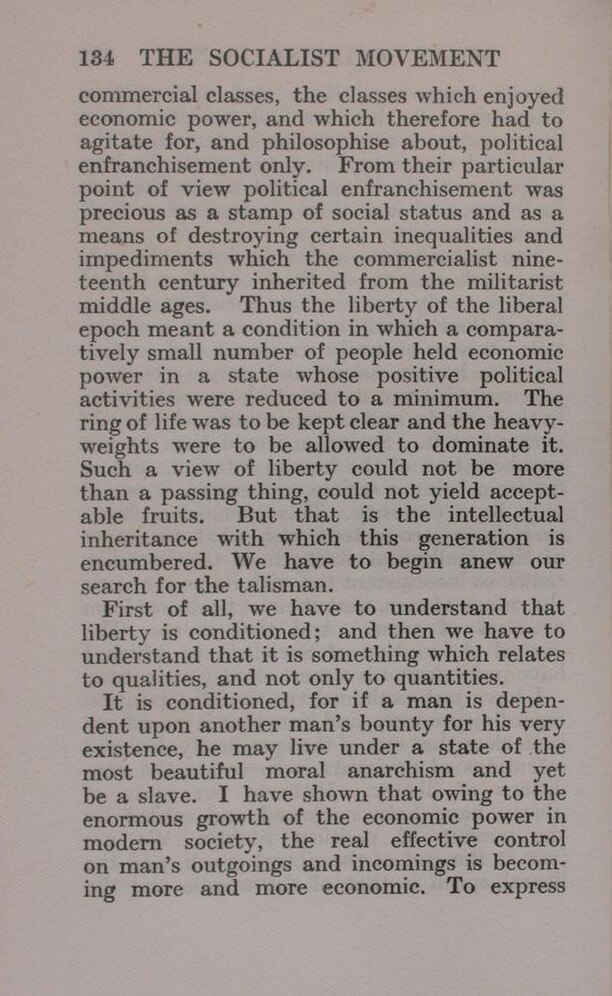commercial classes, the classes which enjoyed economic power, and which therefore had to agitate for, and philosophise about, political enfranchisement only. From their particular point of view political enfranchisement was precious as a stamp of social status and as a means of destroying certain inequalities and impediments which the commercialist nineteenth century inherited from the militarist middle ages. Thus the liberty of the liberal epoch meant a condition in which a comparatively small number of people held economic power in a state whose positive political activities were reduced to a minimum. The ring of life was to be kept clear and the heavyweights were to be allowed to dominate it. Such a view of liberty could not be more than a passing thing, could not yield acceptable fruits. But that is the intellectual inheritance with which this generation is encumbered. We have to begin anew our search for the talisman.
First of all, we have to understand that liberty is conditioned; and then we have to understand that it is something which relates to qualities, and not only to quantities.
It is conditioned, for if a man is dependent upon another man's bounty for his very existence, he may live under a state of the most beautiful moral anarchism and yet be a slave. I have shown that owing to the enormous growth of the economic power in modern society, the real effective control on man's outgoings and incomings is becoming more and more economic. To express
